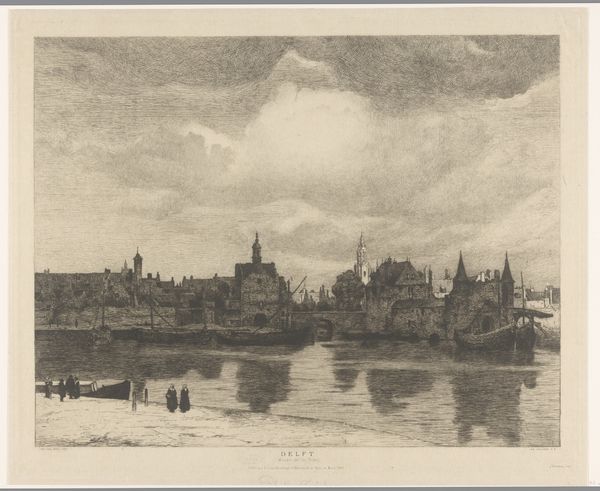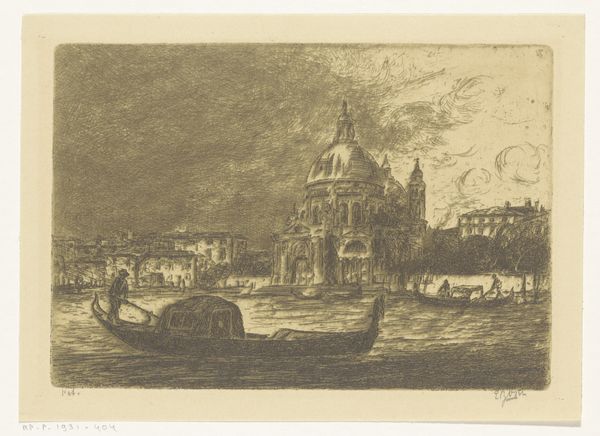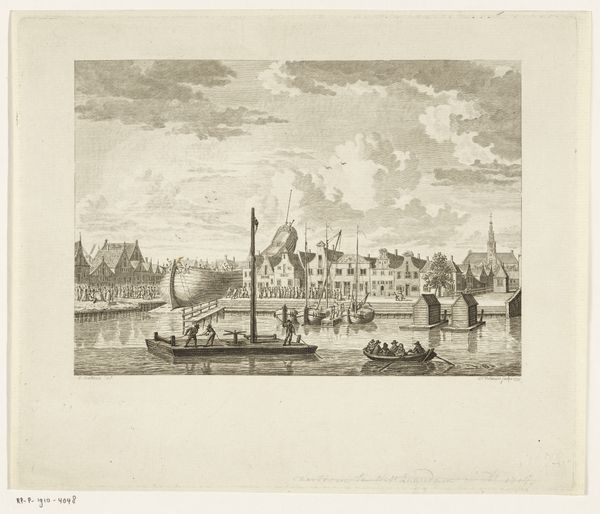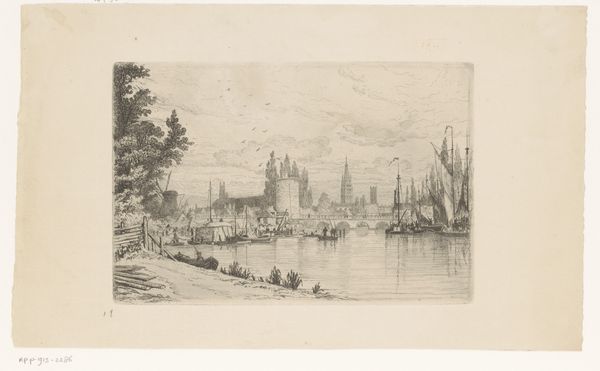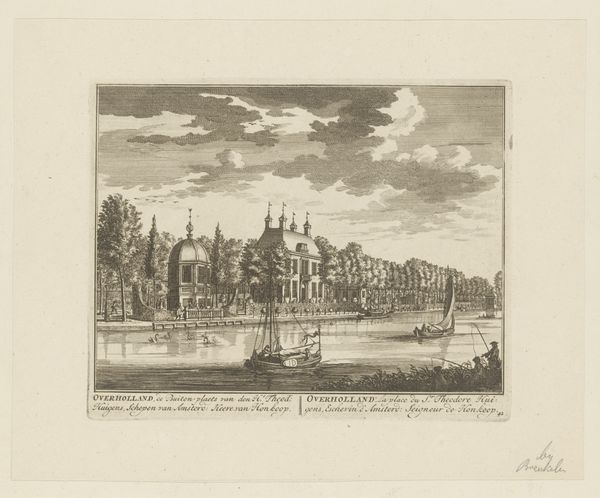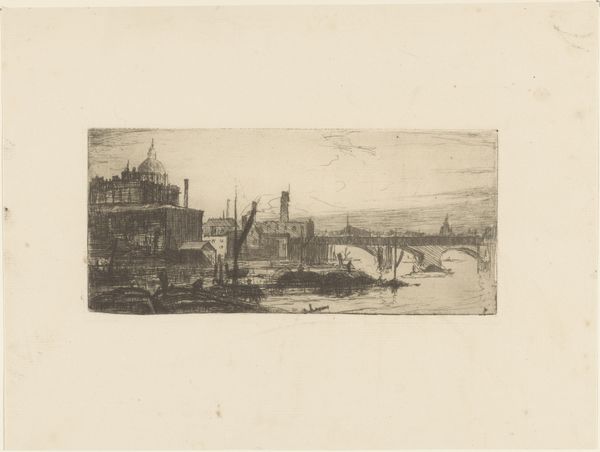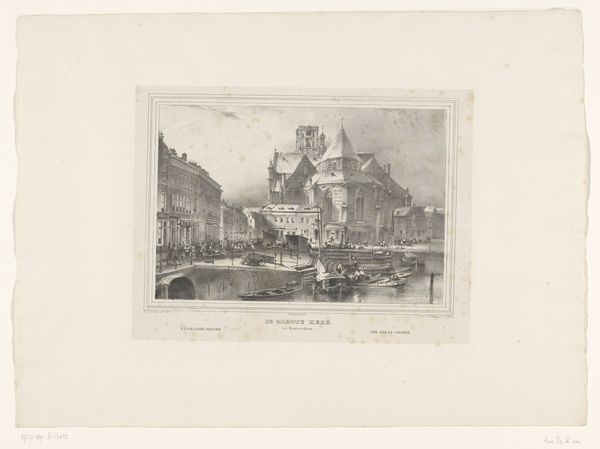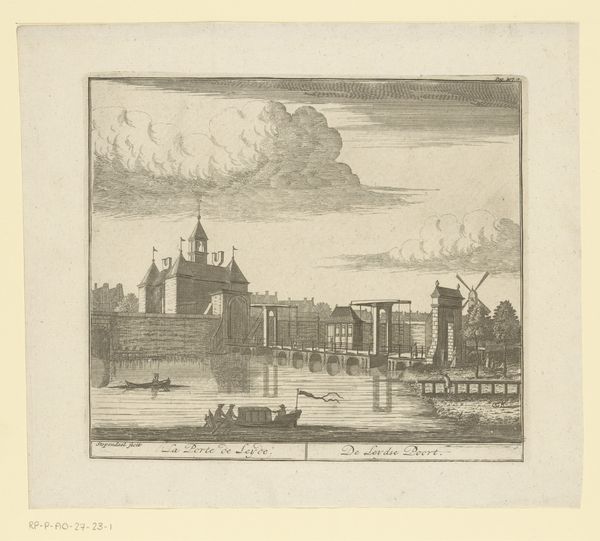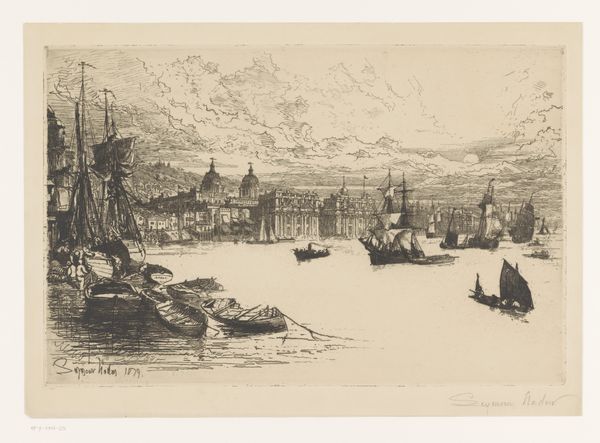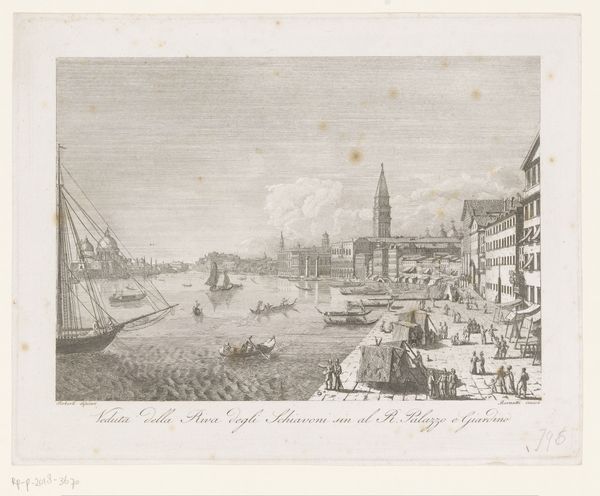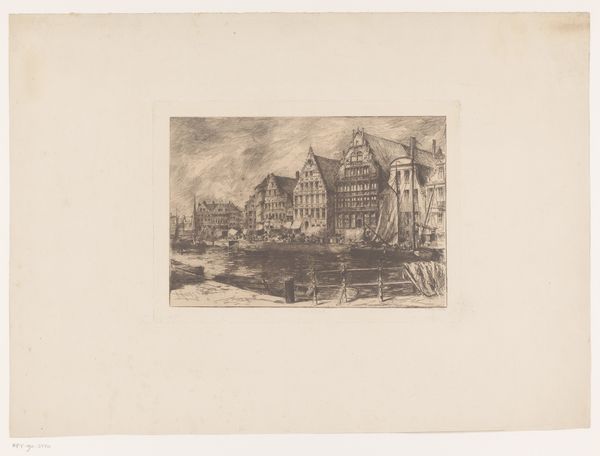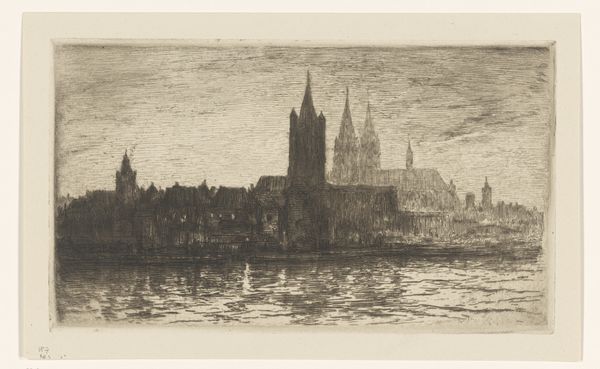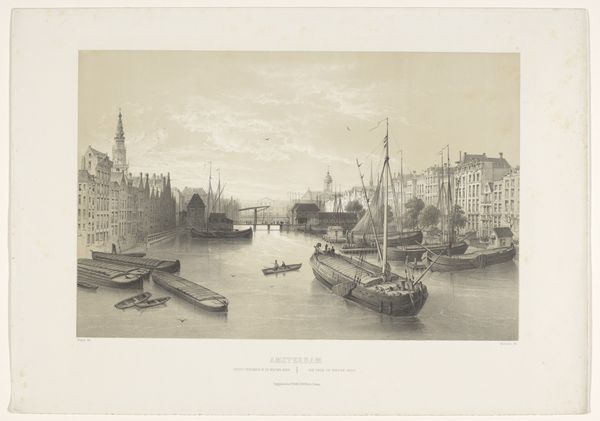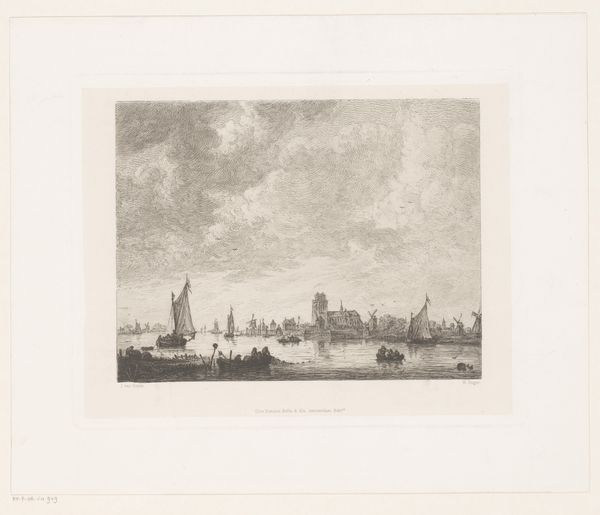
#
photo of handprinted image
#
shape in negative space
#
light pencil work
#
natural tone
#
pencil sketch
#
old engraving style
#
watercolour illustration
#
remaining negative space
#
warm natural lighting
#
watercolor
Dimensions: height 145 mm, width 270 mm
Copyright: Rijks Museum: Open Domain
Editor: This is "Canale Grande te Venetië," created by Auguste Numans sometime between 1833 and 1879. It’s quite a detailed sketch; the water even seems to ripple. What social narratives might this serene depiction of Venice mask, do you think? Curator: That's an insightful question. While seemingly a picturesque scene, remember that these views of Venice, popular with wealthy tourists, often romanticized and exoticized the city, obscuring the realities of its working class. Consider the power dynamics inherent in who had the privilege to travel and consume such images. Editor: So the image itself participates in a system of economic and social disparity? Curator: Exactly. Numans' work, while skillful, is also implicated in the colonial gaze, packaging a place for consumption by those with the means to do so. Who profits from this romantic vision, and whose stories are left untold? Editor: I hadn't considered the 'gaze' aspect so directly here. It makes me think about the lack of everyday life represented, and perhaps an idealized version was more palatable. Curator: Precisely! Now consider how this carefully constructed image, circulated through prints, might have shaped European perceptions of Venice and Italy more broadly. Were these images a form of cultural appropriation, or perhaps even early forms of soft power? Editor: It sounds like we're really asking about the politics of representation here. Art isn't just aesthetic, it's deeply enmeshed within cultural contexts and power dynamics. Curator: Indeed. Understanding those dynamics allows us to view art through a critical lens, not just admiring its surface beauty. This applies even today to how art is showcased. Editor: This has reshaped my understanding, turning a pretty picture into an artifact of social positioning. I have much more to learn about how we look, who is seen, and by whom. Curator: Keep that curiosity, and you will uncover layers of meaning in art that are so powerful.
Comments
No comments
Be the first to comment and join the conversation on the ultimate creative platform.
